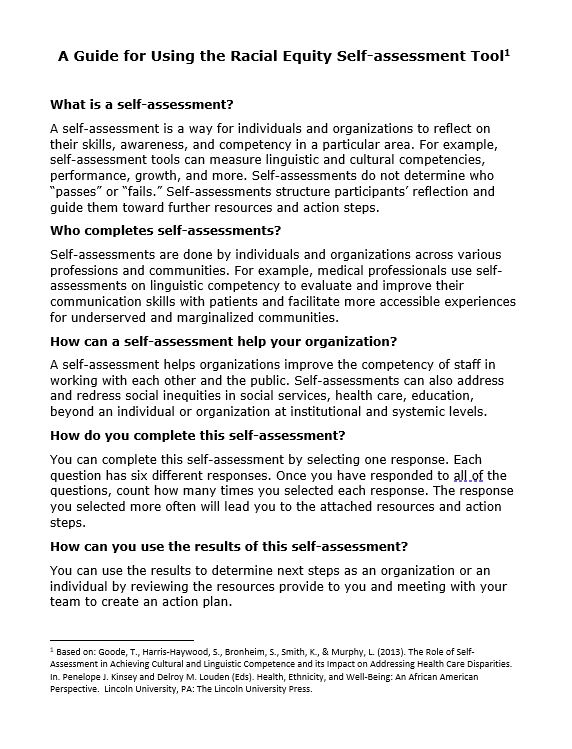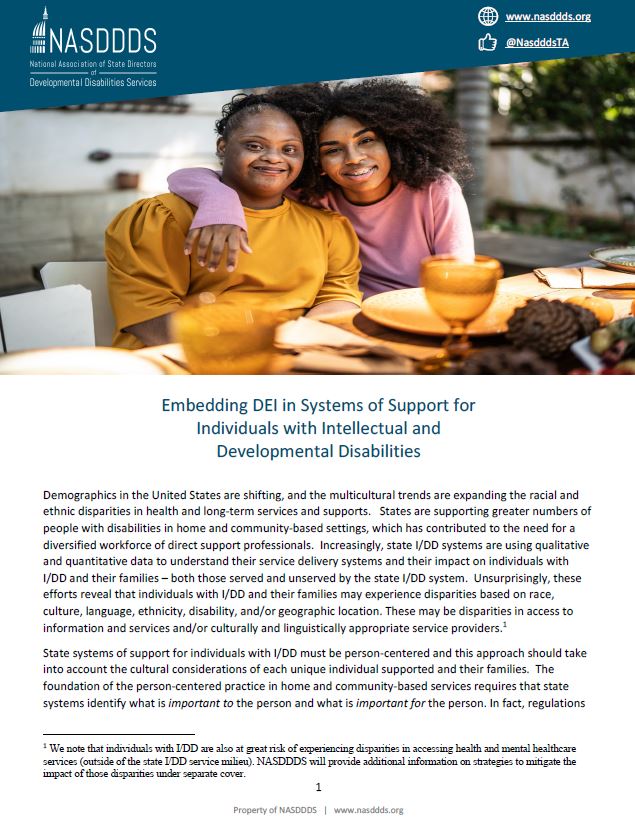

In 2020, the Information Sharing and Advisory Committee (ISAC) adopted recommendation #14 to address racial inequity and systemic racism. A new ISAC Racial Equity subcommittee was formed to gather and analyze data and to develop a framework and strategies to address race-related issues identified, in alignment with Department of Human Services’ and Governor’s Office efforts.
The following recommendation and four strategies were developed by the subcommittee:
ISAC Recommendation 14: Promote Racial Equity -“Communities are richer, more just, and stronger when we honor and respect the whole of racial diversity. Access to a quality, person-centered, culturally competent system of supports and funding must be equally available regardless of race. Services must include planning over a life span and address racial disparities, including disparate outcomes. The duty to ensure that racial diversity is promoted and supported, at all levels within the services system, must be embraced.”

1. Consistently include breakdowns by race, in data analysis and reporting, and incorporate in Quality Management (QM) plans.
2. Develop and provide peer training for self-advocates on racial bias and racial equity.
3. Support Organizations with tools to improve racial equity performance and ensure increasing levels of racial diversity and inclusion, across all levels of the organization, as part of their quality management strategy.
4. Disseminate county level employment reports, that include comparisons by race, to Administrative Entities and local employment coalitions. Engage employment leads and coalitions in discussion about racial disparities and support adoption of local strategies to address the disparities. *
* This strategy was added to ISAC Recommendation 3: Increase Employment.
The ISAC Racial Equity subcommittee added a racial equity lens to 20 existing ISAC performance measures that focus on racial equity in various areas of interest across the ISAC Recommendations including Communication, Self-Direction, Choice and Control, Employment, Supporting Families throughout the Lifespan, Health, Wellness and Safety, Supporting People with Complex Needs, Options for Community Living, Community Participation and Community Services. Baseline data on these racial equity performance measures was included in the 2022 ISAC Annual Report.
Here is an example of one of the many ways that ODP is collecting racial data to assess racial equity. This example comes from the Quality Assessment and Improvement (QA&I) process:
Here are links to some of ODP’s published reports that include racial data:
| Racial Equity Self-Evaluation Tool | Embedding DEI in Systems of Support for Individuals with Intellectual and Developmental Disabilities |
|---|---|
 |  |
| The ISAC Racial Equity subcommittee developed a self-assessment tool to assist entities in evaluating their performance through racial equity lens. | The National Association of State Directors of Developmental Disabilities Services (NASDDDS) developed a Self-Evaluation Tool with a broader inclusion scope that includes race, culture, language, ethnicity. |